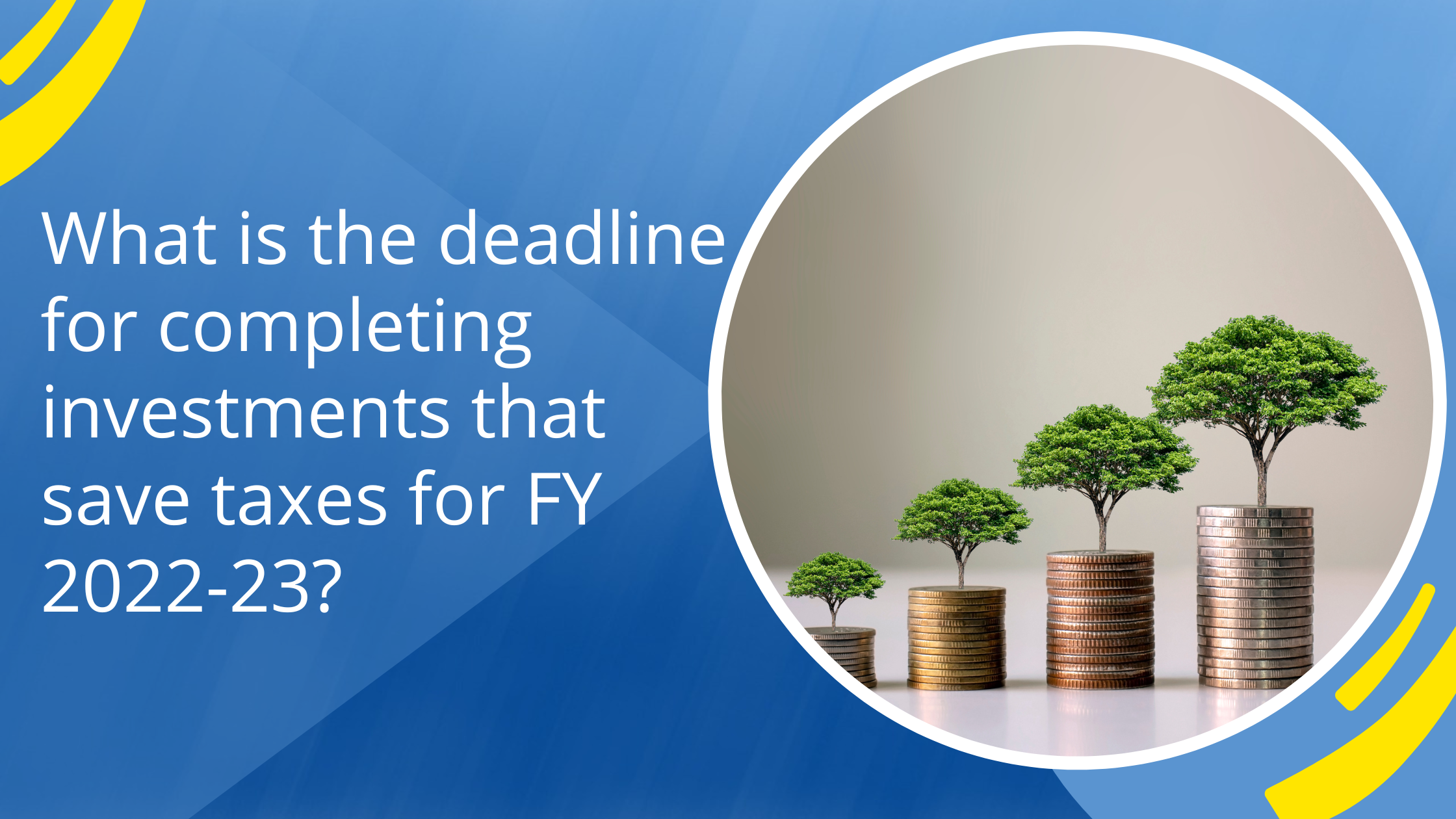The deadline to complete your tax-saving exercise for the financial year 2022–2023 is March 31, 2023, so move quickly if you haven’t already. Keep in mind that if you don’t make the tax-saving investments and purchases, your tax liability will be higher than normal for the current financial year (2022–2023).
Please be aware that beginning in FY 2020–21, an individual will have the choice of the new tax system or the previous/current tax regime. An individual will be qualified to claim tax exemptions such as house rent allowance (HRA), leave travel concession (LTC), and deductions under sections 80C (up to a maximum of Rs 1.5 lakh per financial year), 80D (deduction for medical policy premiums paid), 80E (interest paid on education loan), etc. if they choose the old/existing tax regime for the current FY 2022–23.
Let’s calculate how much your tax obligation would grow if you didn’t make any tax-efficient investments. If your total annual income is Rs. 10 lakh and you are unable to invest Rs. 1.5 lakh in eligible investments under Section 80C, such as Public Provident Funds, equity-linked savings schemes of mutual funds, etc., your tax obligation will be Rs. 1.17 lakh (under the previous tax system, inclusive of the 4% cess). Your tax liability will be Rs 1,06,600 (Inclusive of cess at 4%) if you invest Rs 1.5 lakh in a tax-saving instrument as described in section 80C. This represents a $10,400 difference.
If you choose the new tax system, it no longer offers the usual tax deductions and exemptions that were discussed above, but it does offer lower, concessional tax rates. Only the employer payment to the employee’s NPS account is deductible under section 80CCD (2) of the new tax code.
Your tax obligation in the aforementioned situation, if you choose the new tax system, will be Rs 78,000 (inclusive of cess at 4%), when you file your income tax return.
The old tax system is preferable for you if the total deductions you seek in a financial year surpass Rs 2.5 lakh, according to tax experts.
How you should proceed
There are other online options available to you if you haven’t finished your tax-saving exercise, including 5-year bank fixed deposits, home loan prepayment, investing in PPF, ELSS mutual fund schemes, etc.
There are some expenses that are eligible for deductions under the Income-tax Act if you are experiencing a cash flow problem that prevents you from investing in tax-saving instruments on time. These include paying for children’s education and the principal on a mortgage. Additionally, paying interest on a mortgage has the added benefit of reducing taxes.
As March 31 marks the end of the fiscal year, make sure you have deposited the required minimum in tax-saving accounts such Public Provident Fund, etc. The accounts will become dormant if the required amount is not deposited.

